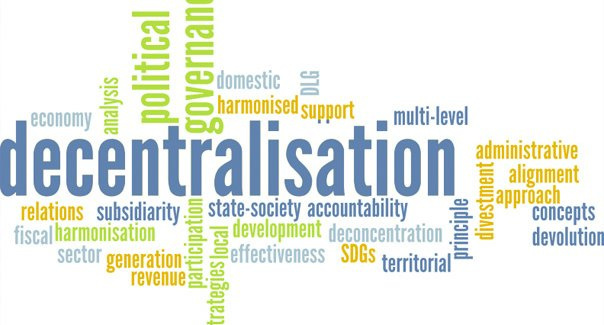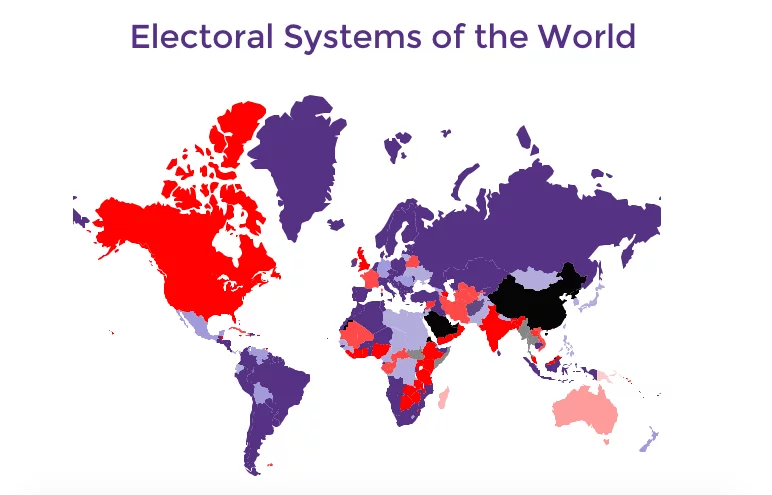Identity Politics Discourse Role | Analyzing Impact
Explore how identity politics shapes discourse and outcomes. Discover the influence of identity politics on modern society.

The Impact of Identity Politics on Political Discourse and Outcomes
In recent years, identity politics has become a prominent and divisive force in political discourse around the world. This phenomenon revolves around the idea that an individual's political and social identity, which can be based on factors such as race, ethnicity, gender, sexual orientation, religion, and more, plays a crucial role in shaping their political beliefs, affiliations, and actions. While identity politics has undoubtedly empowered marginalized groups and brought important issues to the forefront, it has also been criticized for deepening divisions and hindering constructive political dialogue. This blog explores the multifaceted role of identity politics in shaping political discourse and its impact on political outcomes.
Defining Identity Politics
Identity politics is a complex and contested term. At its core, it refers to the ways in which people's social and political identities intersect and influence their political beliefs and behaviors. These identities can encompass a wide range of characteristics, and individuals often align themselves with particular political movements or parties based on shared identities and experiences.
The Positive Aspects of Identity Politics
Empowerment of Marginalized Groups: One of the most significant positive aspects of identity politics is its capacity to empower marginalized communities. Historically disenfranchised groups, such as women, racial minorities, and LGBTQ+ individuals, have used identity politics to demand equal rights and representation. By organizing around their shared identities, these groups have been able to achieve important legal and social changes.
Highlighting Underrepresented Issues: Identity politics has been instrumental in bringing attention to issues that may have otherwise been overlooked. For instance, the Black Lives Matter movement has drawn global attention to racial inequality and police brutality. Similarly, the #MeToo movement shed light on the pervasiveness of sexual harassment and assault. These movements have succeeded in pushing these issues onto the political agenda.
Diverse Representation: Identity politics has led to a more diverse and representative political landscape. As marginalized groups become politically active, they often seek candidates who share their identities and experiences. This has resulted in a more inclusive range of political leaders and representatives, which can help ensure that a broader spectrum of voices is heard in government.
The Negative Aspects of Identity Politics
Division and Polarization: One of the main criticisms of identity politics is that it can deepen societal divisions and political polarization. When politics is primarily framed around identity, it can create an "us vs. them" mentality, making it difficult to find common ground or engage in constructive dialogue with those who hold different identities or viewpoints.
Intra-Group Disagreements: Within identity-based movements, there can be significant internal disagreements. Not all members of a particular identity group share the same political views, and this can lead to tensions and infighting. These divisions can weaken the overall impact of the movement.
Instrumentalization by Politicians: Identity politics can be exploited by politicians who use it to mobilize their base or manipulate public sentiment. This can lead to identity-based fearmongering or the prioritization of symbolic gestures over substantive policy changes.
Neglect of Broader Issues: Critics argue that identity politics sometimes focuses excessively on specific identity-related issues at the expense of broader social and economic challenges. They argue that this narrow focus can divert attention from structural inequalities affecting all members of society.
The Evolving Landscape of Identity Politics
As the world continues to change, the landscape of identity politics also evolves. It is essential to consider some key developments and trends that shape the ongoing impact of identity politics on political discourse and outcomes.
Intersectionality: An important evolution in identity politics is the recognition of intersectionality?the idea that individuals often have multiple overlapping identities that intersect to create unique experiences and challenges. For example, a Black woman's experience is different from that of a Black man or a white woman. Acknowledging intersectionality has led to a more nuanced understanding of identity, which in turn has influenced political discourse by highlighting the need for more comprehensive and inclusive policies that address a broader range of experiences and inequalities.
Social Media and Online Activism: The rise of social media has transformed the way identity politics is practiced. Movements and discussions can spread rapidly online, allowing for greater mobilization and visibility. However, the online environment is also prone to echo chambers and the spread of misinformation, which can exacerbate polarization and hinder productive discourse.
Backlash and Populism: Identity politics has generated a backlash in some quarters, with populist leaders often capitalizing on perceived grievances of majority groups who feel ignored or marginalized. This backlash has been evident in various countries and has contributed to the rise of far-right movements in some cases.
International Impact: Identity politics is not limited to one country or region; it has a global impact. Movements in one part of the world can inspire and connect with similar movements elsewhere. For instance, the global women's rights movement and the fight for LGBTQ+ rights share strategies and experiences across borders.
Policy and Institutional Changes: Identity politics has also led to substantive policy changes, such as affirmative action, anti-discrimination laws, and inclusive language reforms. These policy shifts are tangible outcomes of identity-based activism and demonstrate how political discourse can translate into legal and institutional changes.
Navigating the Challenges of Identity Politics
Given the complex and evolving nature of identity politics, there are several strategies and considerations for navigating its challenges and harnessing its potential for positive change:
Dialogue and Understanding: Promoting open, respectful, and empathetic dialogue across identity lines is crucial. Encouraging people to listen to and understand the experiences and perspectives of others can bridge gaps and reduce polarization.
Intersectional Approaches: Policymakers and activists should adopt intersectional approaches that acknowledge the complexities of identity. This can lead to more comprehensive policies that address the unique needs of different groups.
Media Literacy: Promoting media literacy and critical thinking skills can help individuals better navigate the online landscape, identify misinformation, and engage in more informed and constructive discussions.
Civic Education: Incorporating civic education that emphasizes the importance of diverse perspectives and democratic principles can contribute to a more informed and engaged citizenry.
Policy Evaluation: Continually evaluating the impact of identity-based policies is essential. This ensures that they effectively address inequalities without unintentionally creating new divisions.
Identity politics is a powerful force in contemporary political discourse, with both positive and negative implications. It has led to significant advancements in civil rights and social justice but has also contributed to polarization and division. As society continues to grapple with the challenges posed by identity politics, finding a balance between acknowledging the importance of identity and fostering inclusive, constructive dialogue remains crucial. Ultimately, the future of identity politics will be shaped by how individuals, communities, and societies choose to engage with and adapt to this dynamic aspect of our political landscape.
What's Your Reaction?















